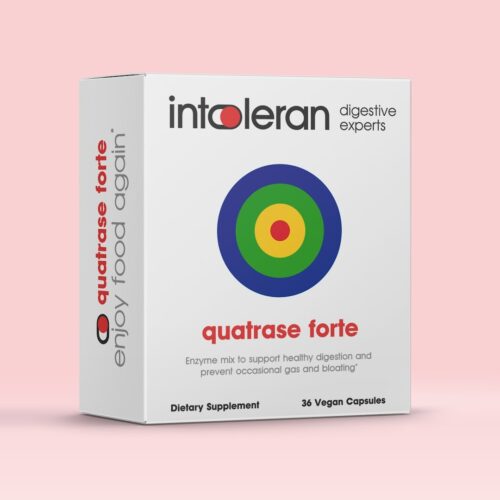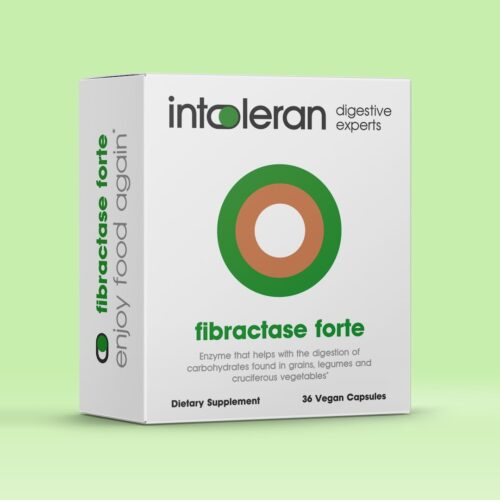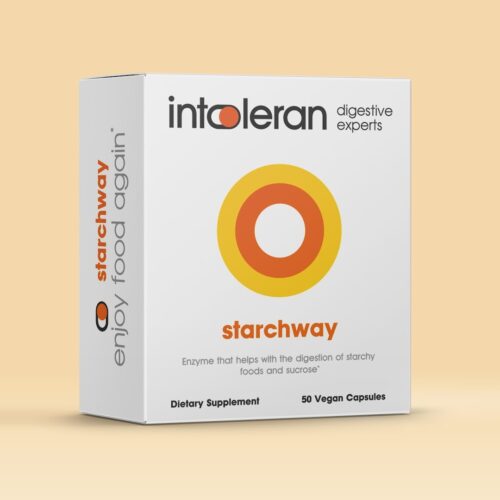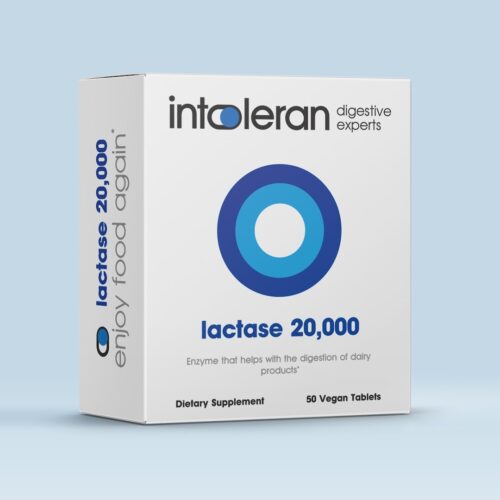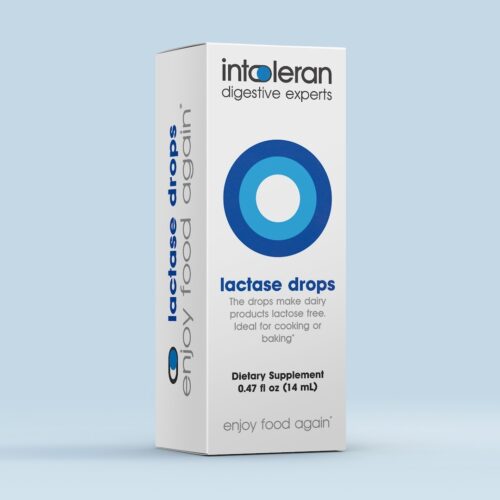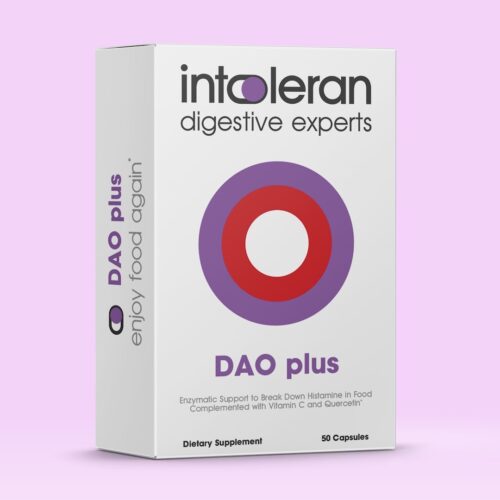Digestive enzymes play a role in digestion. While it is clear that they aid digestion, it can be difficult to understand what the role of a digestive enzyme is in the digestive process. Here is a brief overview of what digestive enzymes are, how they are related to intolerances, and how enzymes in supplement form can help people with food intolerances, for example, to prevent intestinal problems.
Digestive enzymes are certain substances that have a task in our body, specifically in our digestion. They are proteins that are produced naturally in the body. These proteins have a specific function: they help to break down your food.
Different enzymes break down different foods and are produced in different places in the digestive tract. This starts with the mouth, where enzymes are released and activated in your saliva. More enzymes take part in the process in areas such as the stomach and intestines. The small intestine is where most of the breakdown and digestion takes place.
An enzyme works according to the key-lock principle, as shown below. The enzyme works like a key, that only fits in a certain lock: namely the food substance. Thus the enzyme lactase only fits on lactose, after which lactose is split into glucose and galactose. So an enzyme has actually only 1 task and can cause no further damage in the body.
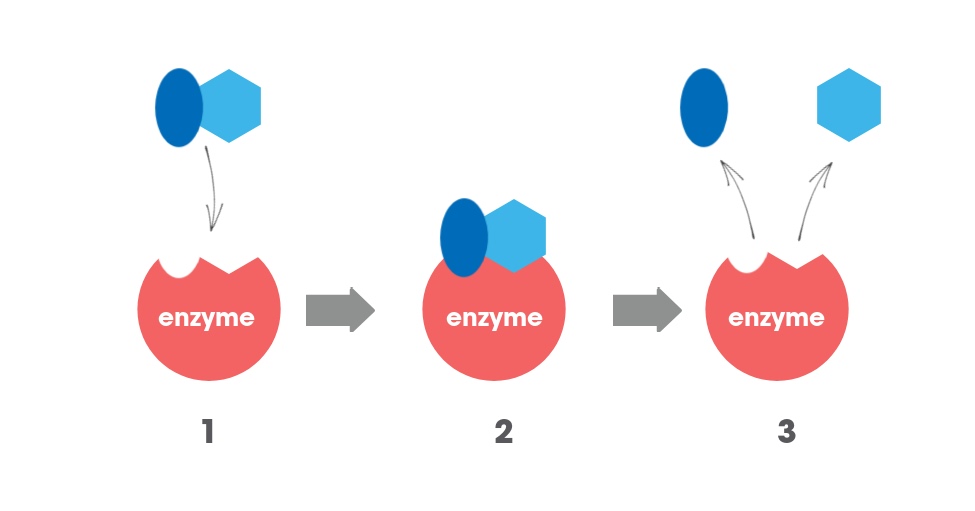
There are many different enzymes that the body needs to produce. These help break down a wide range of different nutrients, such as lactose, fructose, galactans, starch, sucrose, and histamine.
A deficiency of an enzyme can lead to a food intolerance. This is different from a food allergy. The latter is the result of a reaction by your immune system and can be very dangerous. The former is simply an inability to completely break down food in your digestive system. This is usually not dangerous but can be very uncomfortable.
Intolerance, therefore, involves a specific problem of breakdown, often due to a shortage of a particular enzyme. Lactose intolerance, for example, involves a shortage of the lactase enzyme, which is the enzyme responsible for breaking down lactose. In this case, lactose is not broken down, or not broken down sufficiently, resulting in unpleasant intestinal complaints.
Enzymes in supplement form, such as capsules, drops, or tablets, can help people with food intolerance to digest problematic products.
Supplements for food intolerances are designed to support the body’s own enzymes and help them do their job. When a problematic food enters the digestive system, the supplement provides the enzymes that the body may lack to break it down properly. This reduces the symptoms of food intolerance, such as bloating or flatulence.
After taking the supplement, the enzymes work for 30 to 45 minutes by filling your digestive system with an extra dose of an enzyme that it normally lacks.
The digestive enzymes we use in our supplements are lactase, xylose isomerase, alpha galactosidase, invertase, glucoamylase, and diamine oxidase.
digestive enzymes
Digestive enzymes are important in breaking down food properly. Too few digestive enzymes can cause symptoms such as bloating, flatulence, and abdominal pain. The best way to make up for a deficiency is to take a supplement with digestive enzymes. This reduces the risk of complaints and allows natural digestion to take place.

free advice from our dietitians
Let us help you with your digestive complaints, like we’ve helped many others. We will help you find the solution that fits your needs best.
Fill out our contact form and we will get back to you

 EN
EN NL
NL IT
IT FR
FR ES
ES AU
AU SG
SG